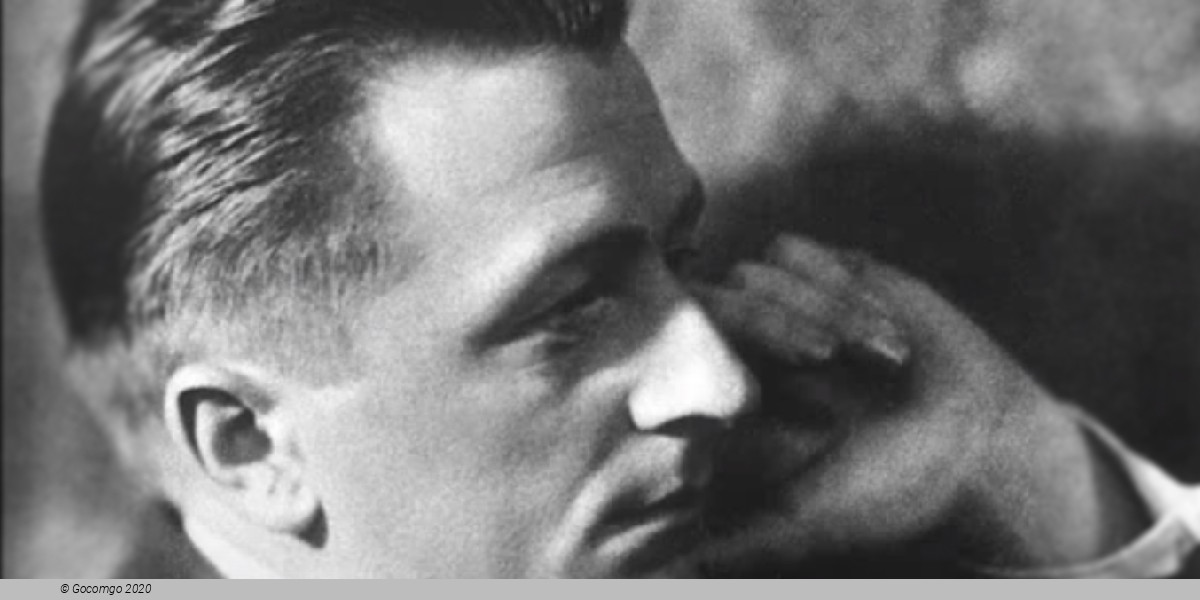Events2 results
About
Jānis Mediņš was a Latvian composer. He was born in Riga. He was a vital force in musical life during the short-lived first independent Latvian republic (1918—40). He almost singlehandly established in his country both the balletic genre – with Mīlas uzvara (‘Love's Victory’, 1934) – and the operatic with Uguns un nakts (‘Fire and Night’, 1913—19) and Dievi un cilvēki (‘Gods and Men’, 1921). It was as a result of multiple invasions of his country that Mediņš left Latvia in 1944, eventually settling for good in Sweden.
Jānis made his debut as a composer with the performance in 1912 of two songs for chorus. Around this time (or soon after) he started work on his opera Uguns un nakts (‘Flames and Night’), and P. Jurjāns organised performances of sections of this work. A certain Jēkabs Duburs heard these extracts, and with fellow-businessmen sponsored Jānis to give up his orchestral position in order to continue work on the opera. As the front approached in 1914, in further attempts to avoid enlistment, Jāzeps and Jānis decided to go to Moscow. After a concert tour, the brothers came home to find their father delirious; Jānis left for St. Petersburg after the father's funeral. However, he did serve as conductor of the Latvian Riflemen's band for some portion of the war.
1920s
During the early 1920s he wrote the first of the 'dainas', and these were followed by a host of orchestral compositions (three suites, concertos for violin and piano etc.) and stage works (the opera Sprīdītis [Tom Thumb], 1925, the ballet Mīlas uzvara [Love's Victory], 1934, and Luteklīte [The Little Darling] a children's opera of 1939, in addition to the above-mentioned). Additionally, his public career flourished: he became conductor of the Latvian National Opera (1920–28) and chief conductor of the Latvian RSO and artistic director of Latvian Radio (1928–44). He also appeared as a guest conductor in Helsinki, Tallinn, Kaunas, Warsaw, Prague and Budapest. He taught in the orchestration class at the Latvian State Conservatory (1921–44), where he was appointed professor in 1929; in 1932 he became head of orchestral conducting.
1940s and after
But this fruitful period came to a close in 1940 with the annexation of Latvia into the USSR – resulting in the deportation or execution of over 30,000 of the population – subsequent German invasion, and then a final Soviet annexation. Jānis took his family abroad, spending time in Rostock, Lübeck and Berlin and then, from 1946, living in the Blomberg refugee camp in Germany with many other Latvians. Finally, in 1948, they settled in Stockholm. Here, although he did not enjoy the high-profile he had enjoyed at home, he remained active as a composer (as he had done in transit) and, during the last two decades of his life he produced a body of chamber works that includes sonatas for ‘cello, violin, clarinet, flute and oboe with piano, as well as a Piano Quintet (1946), a Rhapsody for two pianos (1954) and a sonata for solo accordion (1955). In 1960 he received the Award for Exiled Latvians. Following Latvian independence, his opera Uguns un nakts reopened the restored Latvian National Opera House in 1995.



